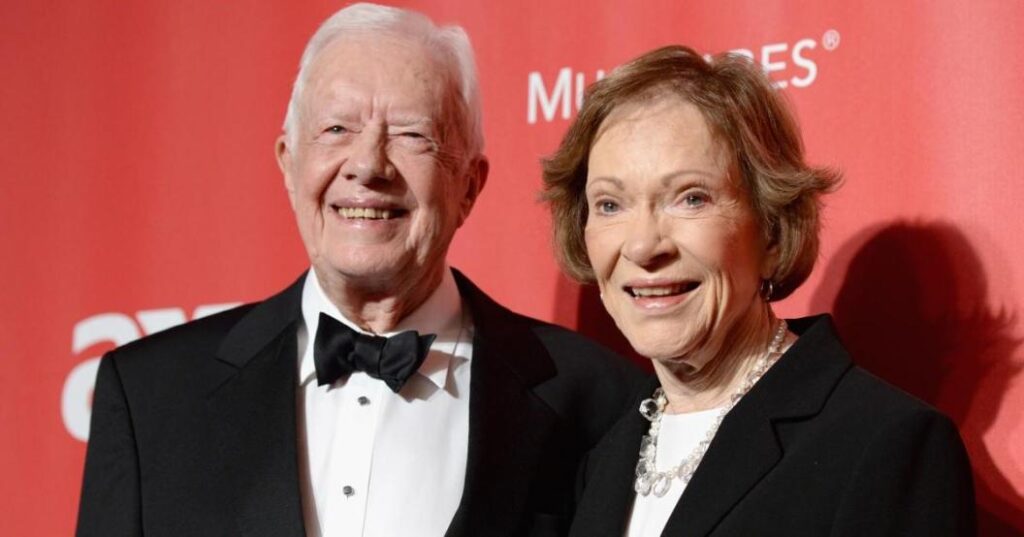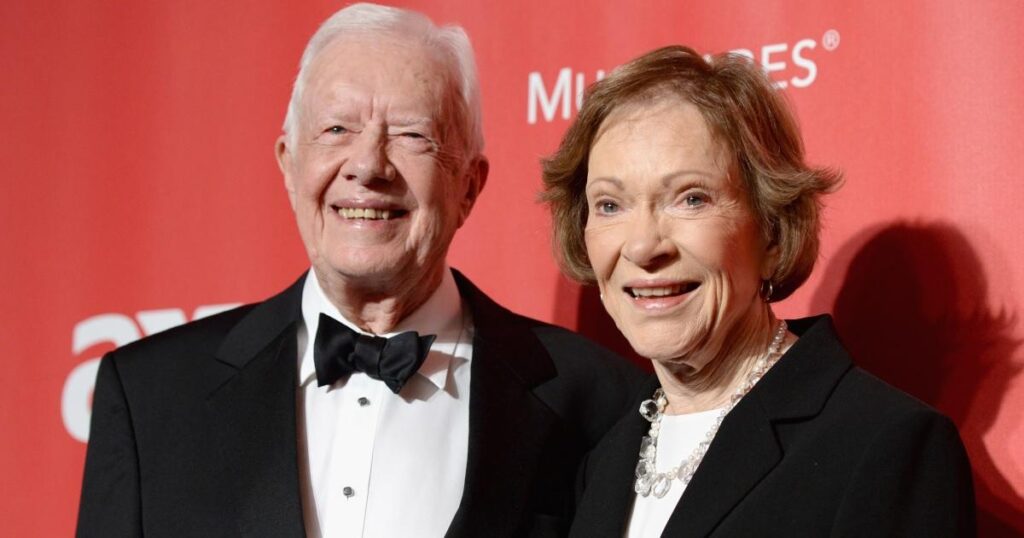

President Jimmy Carter has died at the age of 100. Chip Carter, the former president’s son told The Atlanta Journal-Constitution that he died on Sunday. Carter was home in Plains, Georgia, when he died at 3:45 p.m.
His passing comes just over a year after he began hospice care and his late wife Rosalynn Carter’s death. His wife had also entered hospice care only shortly before she passed on Nov. 19, 2023.
Videos by PopCulture.com
The Democrat from Georgia was the 39th president of the United States and leaves behind a legacy that transcends his time in the White House. His efforts with The Carter Center and Habitat for Humanity earned the former president the Nobel Peace Prize in 2002.
The former president was hospitalized twice in October 2019 following falls at home, suffering a “minor pelvic fracture” that required his most recent stay at Phoebe Sumter Medical Center and requiring 14 stitches above his eye after the first fall. In May 2019, Carter underwent hip replacement surgery after another fall at home.
After his falls, the former president entered Emory University Hospital to undergo surgery to “relieve pressure from his brain” related to his injuries. According to a statement released by the Carter Center, his wife Rosalynn was by his side.
Before his death, Carter became the longest-living president on March 21, 2019, following the death of President George H.W. Bush in November 2018. He is also the oldest living former president to attend a presidential inauguration, doing so at age 92.
Carter and Bill Clinton were the two surviving presidents to have served in the 20th century. He was also one of four surviving presidents along with George W. Bush and Barack Obama. George H.W. Bush was the last former president to die, passing at the age of 94.
As The Independent states in their look back at Carter’s presidency, he was “widely considered a better man than he was a president.” He was the first president since Herbert Hoover to lose a bid for reelection, falling to Ronald Reagan in 1980. Despite his short tenure, his election was seen as a direct rebuttal to the fallout of the Watergate scandal and the decision of President Gerald Ford to pardon Nixon from any wrongdoing in the scandal.
The Carter administration is regularly ranked low when compared to other presidents but should be highlighted for Carter’s efforts toward energy conservation and his push for healthcare. He has also been lauded for his role in the Camp David Accords between Egypt and Israel, and the SALT II treaty with the Soviet Union.
However, his missteps with foreign policy overshadowed his successes. This was especially true with the Iran Hostage Crisis and his failure to resolve it before the end of his presidency. The fallout and criticism of his leadership style marred his legacy as president and gave Ronald Reagan fuel to propel himself to victory in 1980.
But it was with his post-presidential life that Carter’s influence grew both inside and outside of the United States. Following his election loss, Carter founded The Carter Center in 1982 with a mission “guided by a fundamental commitment to human rights and the alleviation of human suffering.” Through the Center, Carter engaged in conflict mediation in countries including North Korea in 1994, Venezuela from 2002-2003, and continued efforts in the Middle East beginning in 2003. The Center also has several election-observation missions all across the globe and has pushed for the eradication of Guinea worm disease.
Carter is also well known for his work with Habitat for Humanity. The former president became involved with the group in 1984 and he volunteered for the charity one week a year alongside wife Rosalynn.
